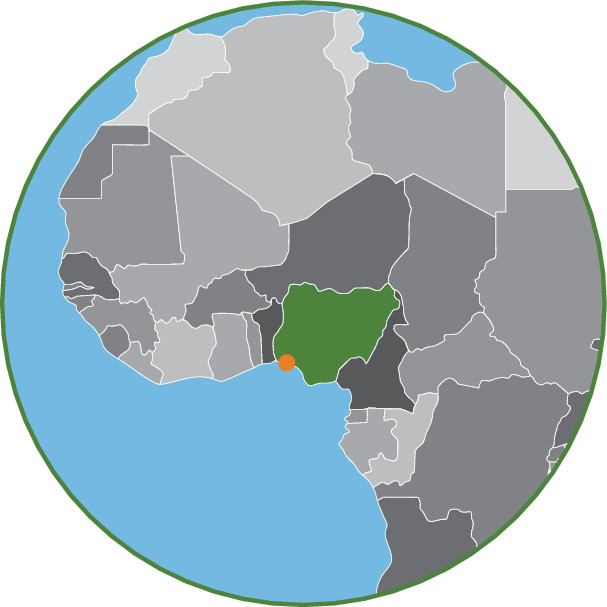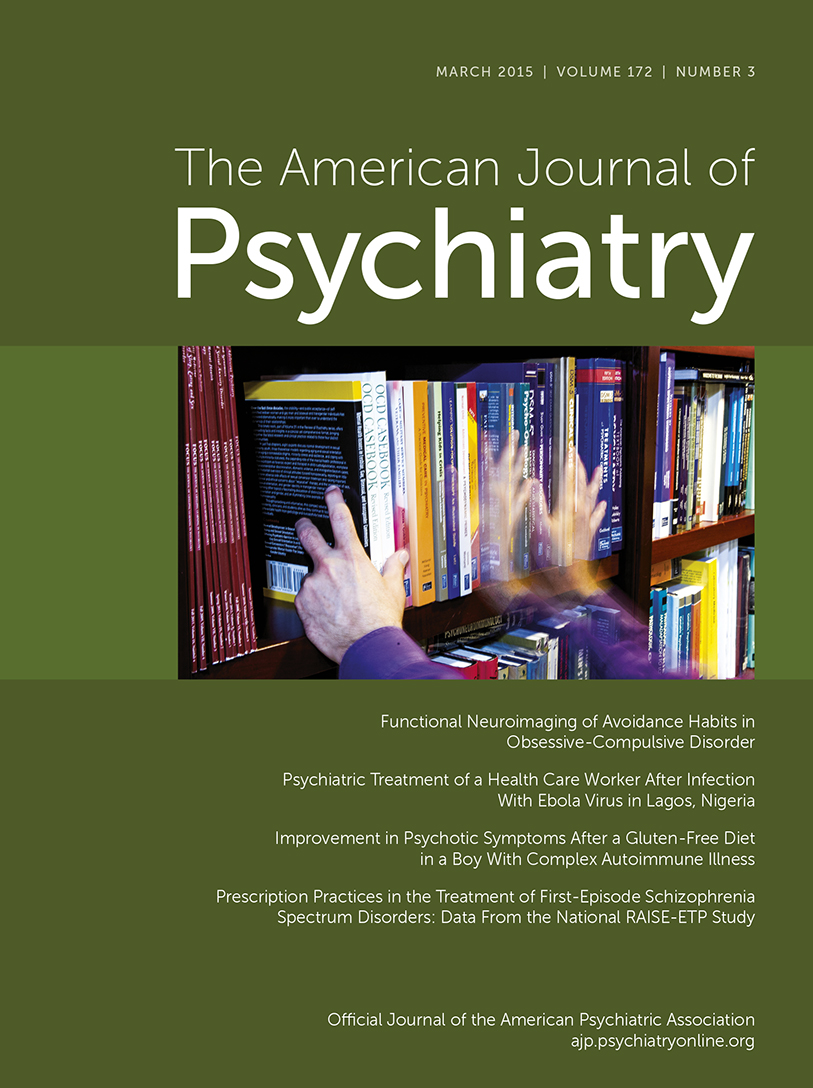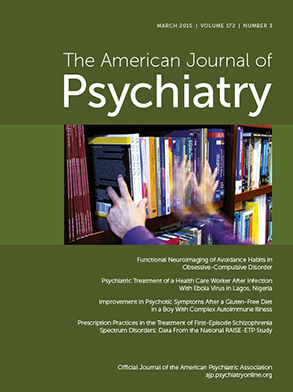A young single male health worker was admitted to the isolation ward of the infectious disease hospital in Lagos with Ebola virus disease, which he had contracted in the course of rendering services to the index case in Nigeria. Three weeks after the admission, he appeared confused and was sleeping poorly, talking tangentially, and exhibiting unruly, disruptive behavior toward those caring for him. His behavioral symptoms were worse during relatives’ visits. The clinical management team considered a diagnosis of permanent brain injury secondary to the Ebola virus infection but could not conduct the relevant investigations because of the contagious nature of the illness. The patient was referred to the psychosocial team.
On evaluation, the psychosocial team found the patient to be apprehensive and fearful about the outcome of his illness. He lamented having contracted the virus, despite having taken what he considered adequate precautions while attending to an infected patient. He had feelings of sadness and self-pity, saying that God had forsaken him and at other times saying that God did not exist. He often paced up and down the corridor. His poor sleep seemed to contribute to his daytime anxiety. He was angry with his clinical colleagues, who were now his clinical management team, and his relatives for “ostracizing” him in the isolation ward. He felt very sad about both groups seeing him in “this helpless situation.” He had no past history of mental disorder.
Mental state examination revealed a restless and agitated young man. He described his mood as not happy. His thinking was slowed but goal directed. He worried that some patients admitted after him had already been discharged after achieving remission and believed that his condition was probably not responding to treatment. He had no delusions, obsessions, or hallucinations. He was oriented in time, place, and person, but his attention and concentration were impaired. He could recall only one of five objects in 5 minutes. He lacked insight into his mental problem. Further cognitive and neurological evaluation was not attempted because of the patient’s contagious status. He had been physically stable for several days prior to consultation, although his blood test was still positive for Ebola virus. A diagnosis of adjustment disorder with mixed disturbances of emotion and conduct was made.
The psychosocial team commenced supportive psychotherapy and problem solving therapy. The patient was encouraged to cooperate with the management team and caregivers for the desired therapeutic outcome. Because of his poor sleep and anxiety, we prescribed 25 mg of amitriptyline at night, and increased the dose to 37.5 mg 48 hours later. The primary management team was educated on the nature of his psychological disorder, which could mimic cognitive impairment secondary to Ebola virus disease-induced brain encephalopathy. They were informed that his behavior could be ascribed to the psychological stress of having a life-threatening disorder. The patient’s relatives were also given psychoeducation. Like the patient, they were allowed to express their frustration and were educated on how best to manage their expectations.
Three days after amitriptyline and supportive psychotherapy were started, the management team reported noticeable improvement in the patient’s sleep pattern and a gradual reduction in his disruptive behavior. By the time the patient was discharged, after fulfilling the clinical management team’s discharge criteria, which included a negative blood test for Ebola virus, he was no longer considered disruptive or exhibiting features of confusion. He had nightmares during the first and second weeks after discharge that gradually subsided. Serial scores on the Mini-Mental State Examination (MMSE) were consistently in the normal range (29 to 30). Supportive psychotherapy and counseling continued over the telephone. The patient had 24-hour access to a psychiatrist and a social worker by mobile telephone.
Four weeks after discharge, the patient’s condition remained stable. He was sleeping well, without nightmares. His amitriptyline dose was reduced to 25 mg at night, and further reduced to 12.5 mg 7 weeks after discharge. The patient has since resumed his health care work and reports no clinically significant psychological distress. Nine weeks after discharge, the amitriptyline was discontinued.
Discussion
This young health worker developed adjustment disorder following nosocomial infection with Ebola virus. He received both pharmacological and psychological management. He made significant clinical improvement and has since returned to his premorbid level of functioning.
Because the patient’s symptoms were similar to those often seen following viral encephalitis, such as altered level of consciousness, disorientation, and behavioral disturbances (
1), we were initially concerned that he might have Ebola virus encephalitis. The features of low mood and anxiety (sleeplessness, sadness, helplessness, restlessness, and fearfulness) and use of maladaptive coping strategy (unruliness in the presence of relatives) suggested that the patient’s problem might be more psychological than physical, or at least a combination of the two. Additionally, viral encephalitis usually occurs at the peak of fever and viremia, and the clouding of consciousness may progress to unconsciousness and seizures.
The absence of lateralizing signs, speech defects, and convulsions also suggested that brain damage was unlikely. It was important to rule out brain damage secondary to intracerebral hemorrhage, which could be associated with Ebola virus disease (
2). Our early assessment that the patient’s clinical features indicated a psychological rather than a physical origin, based solely on clinical interviews and behavioral observation, gave the primary management team confidence, thus reducing the need for further diagnostic investigation to confirm Ebola virus encephalitis or intracerebral hemorrhage.
The differential diagnosis that we considered included acute stress disorder, posttraumatic stress disorder (PTSD), and major depressive disorder, given the presence of prominent affective symptoms following a life-threatening illness. Acute stress disorder differs from adjustment disorder in that it focuses on fear and anxiety, whereas adjustment disorder encompasses all forms of psychological distress responses, such as depression, anger, and guilt. Unlike early diagnosis of PTSD, diagnosis of adjustment disorder does not include the explicit goal of identifying patients who will suffer subsequent impairment (
3). The time line of the illness and the absence of intrusions and avoidance also preclude the diagnosis of PTSD (
3). The patient’s clinical presentation was not of sufficient intensity to meet the diagnostic criteria for major depressive disorder.
We have assessed similar symptoms in four other patients who survived Ebola virus disease. In addition, about one-third of 33 individuals we studied who had contact with Ebola virus-infected patients showed similar, but milder symptoms. For eight relatives we studied who lost a family member during the outbreak, we found double the risk of a significant psychological reaction. For health care workers in these groups, the risk was about half that seen in others.
For this patient, we found the use of supportive psychotherapy and counseling to be very useful. Maina et al. (
4) demonstrated the efficacy of brief dynamic and supportive psychotherapy over a waiting list condition in the management of adjustment disorder. The prominence of poor sleep and restlessness prompted us to prescribe amitriptyline in addition to psychotherapy for this patient. The combination of psychotherapy and a tricyclic antidepressant has been shown to be superior to psychotherapy alone in the management of mild depressive symptoms in patients with comorbid viral infection (
5). Evidence also supports the use of an antidepressant with sedative properties instead of benzodiazepines to target sleep and anxiety in patients with adjustment disorders, as benzodiazepines carry a risk of substance dependence (
6).
Despite the transient development of nightmares in the second and third weeks after discharge, the resolution of the patient’s symptoms and his return to his premorbid level of functioning make the prospect of development of PTSD in the future less likely. The patient’s consistently near-perfect scores on the MMSE also help rule out brain damage secondary to Ebola virus encephalitis.
This first report of a psychological treatment of a patient who developed adjustment disorder with prominent depressive symptoms and cognitive impairment during Ebola virus disease highlights the importance of having a psychosocial component to the response to emerging infectious diseases.
Acknowledgments
The authors acknowledge the Federal Ministry of Health, Nigeria; the Lagos State Ministry of Health; the Nigerian Center for Disease Control; the World Health Organization, Nigeria; United Nations Children Fund, Nigeria; the Ebola Emergency Operation Center, Lagos; Médecins Sans Frontières, Lagos; the Federal Neuropsychiatric Hospital, Kaduna; and the residents of the Nigerian Field Epidemiology and Laboratory Training Program.


